As someone who has never smoked or ingested marijuana, I’ve nonetheless been interested in seeing the drug became a legalized, regulated, and viable option for those who want (or need) to use it. It’s never been an issue of deep reflection because the alternative has been an absolute disaster. And as cartoonist Box Brown (Andre the Giant, Is This Guy For Real?) shows in his profound and deeply-infuriating new book Cannabis: The Illegalization of Weed in America (First Second), the ideologies that pushed for the criminalization of marijuana use are steeped in racism, xenophobia, and unfounded fear. Recently, I sat down with Brown to talk about these ideologies, but also about the research he did for the book, how is own personal experiences shaped the thesis of the comic, and what we can expect the future of marijuana legalization to look like in America.
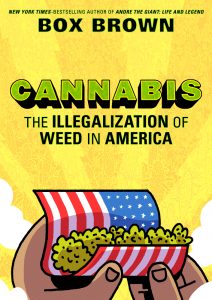
BOX BROWN: So, I was arrested for cannabis possession in 1996 when I was 16. It was a traumatic event in my life and really scary for my whole family. I went through the legal system, court dates, probation, drug tests, and threats of juvenile detention. Since then, this subject of the legal status of cannabis has never been far from my view. Even as a 16 year old, I was unable to come to grips with what I saw as, well, total bullshit. Working on this book was kind of like working on my Tetris book. In that book, I tried to make Tetris, the game itself the main character. I tried to do the same with Cannabis in this book.
FROST: The majority of your oeuvre is looking at marginalized or niche subject matter (video games and wrestling, for example) and bring new attention to it. What do most people get wrong about cannabis in America?
BROWN: Oh boy a lot! It’s been 83 years plus and counting of nationally-distributed, government-sanctioned propaganda! People are confused and understandably so. Unless you’re really involved, it’s extremely difficult to separate fact from fiction. I think the biggest thing we’re getting wrong currently is making the push for legalization about money. It’s about righting a wrong. In New Jersey, they’re voting on a legalization bill as I type this that may or may not pass; there is lots of red tape surrounding the sales of cannabis. I think there are TWO separate bills that need to be passed. This has happened in Vermont and Maine, where they have one bill that legalizes possession, homegrow and expunges records. Then they can take their time developing a sales scheme that is beneficial to the entire population. New Jersey is still arresting 89 people PER DAY while they’re cutting up the future earnings coming up with this bill.
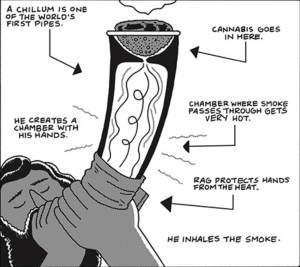
BROWN: The most surprising thing was probably that one big reason cannabis is illegal THROUGHOUT THE WORLD is blatant careerism. Anslinger worked on alcohol prohibition so when that came to an end he needed to keep his job. His crusade against cannabis spread to the entire world via the UN even to countries where cannabis was a huge part of the culture since time and memorial, like India. How many countless lives have been disrupted and ruined so this person could have a high paying powerful job?
FROST: Your book is a critical examination of the history of marijuana and the efforts to demonize and illegitimate its use. But a not-so-subtle throughline of the book is the pernicious use of racism to scare people about the non-existent horrors of marijuana use. How much has race been a factor in the continuing marginalization of pot and other drugs?
BROWN: Well, cannabis prohibition disproportionally affects people of color nowadays but it was surprising/unsurprising that this was always the case and in fact was the purpose of prohibition from the beginning! The first prohibition laws sprung up anywhere the Mexican population butted up with Americans. El Paso, Texas had the first local prohibition ordinances and it was completely used to control the emigrating Mexican people. The lies that sprung up surrounding its effects were all to justify a racist law. They needed a reason to do this.
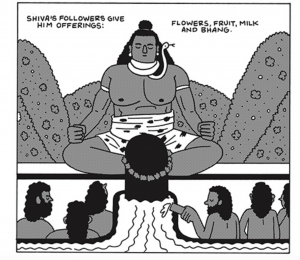
BROWN: Well, it didn’t change my mind really but I hope it enlightens people who may never use cannabis or never interact with it. I think people constantly compare cannabis use to alcohol, which is extremely dangerous. It’s not really a fair comparison. I think it’s much more like aloe and coffee. It’s a therapeutic substance that people use to get through the day and to treat life’s aches and pains. Tylenol is far more dangerous. Once people come to this understanding I think we’ll see not only legalization but the end of these punitive legalization laws we are seeing.
FROST: As you look out on the culture now, what do you expect the future of marijuana legalization to be in the next five years? Ten?
BROWN: I would imagine within ten years we’ll see full federal legalization across the country. We’ll see the rise of enormous cannabis corporations doing tons of shady things on a national level (not just states). I think at some point one state is going to make it very easy to start a cannabis company and make it cheap to grow and ship from their state and they’ll become the place where ALL the cannabis in the country will come from. People will order cannabis by mail, on Amazon, etc. yet, also I see some states in the country arresting people for illegal homegrow. There were states that remained “dry” after alcohol prohibition up until the 1970s. We’re going to see cannabis “blue laws” in a lot of states. It’s going to be a constant push and pull and it won’t end until we see cannabis with the same legal status and price of tomatoes.
Cannabis: The Illegalization of Weed in America will be released on April 2.


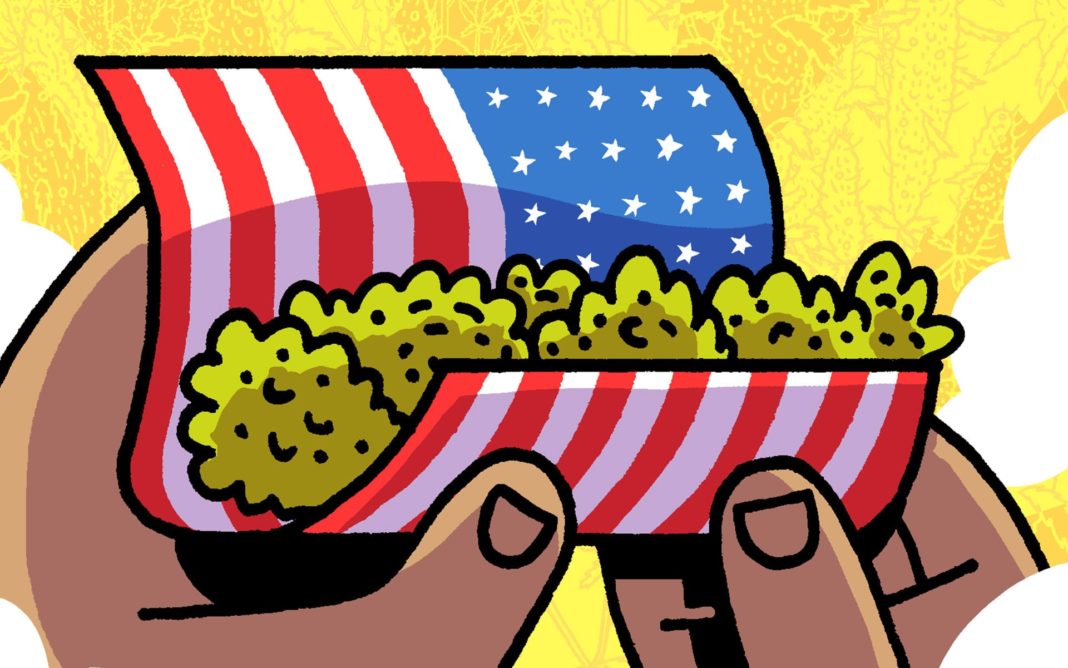

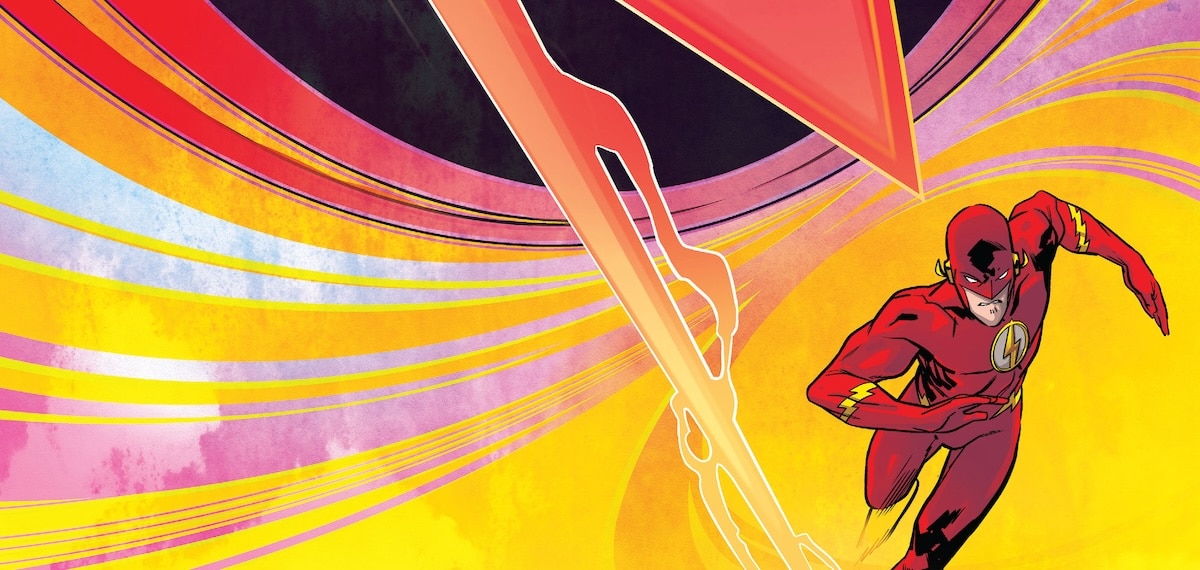

This looks so dope. Thank you Box and thank you AJ. I hope Oregon is the state that becomes the big exporter, we’re doing it pretty well out here. The only problem is too much weed! We’re producing many times the amount that all the stoners and medical patients in the state could possibly ingest. So instead of interstate trade we have enterprising risk takers driving to Jersey and selling it on the black market for 10 times what any local pays here at the dispensary, or worse, growers simply burning piles of surplus weed.
Comments are closed.